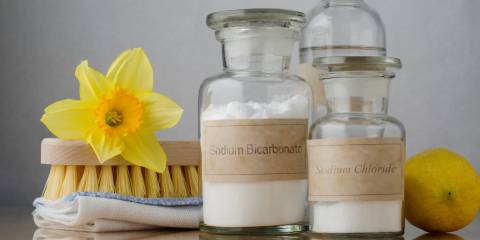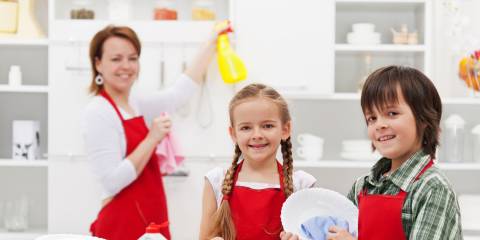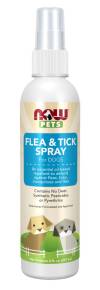One New York mother recently tossed out her commercial cleaners after her child’s school started using environmentally friendly cleaning products. “You could tell the difference” between natural cleaners that use biodegradable surfactants, citrus oil, food-grade nontoxic oxygen stabilizers, hydrogen peroxide, and water and the standard cleaning products “our moms used,” she explained.
Why Clean Green?
“Only about 2,000 of the chemicals in commercial use have been evaluated by the National Toxicology Program,” says Ann Louise Gittleman, PhD, CNS. Some spray glass cleaners, for example, contain the neurotoxin butyl cellosolve, which can be absorbed by the skin. Carpet shampoos and upholstery cleaners emit ammonia, ethanol, and perchloroethylene that can disrupt endocrine and nervous system activity. Many detergents and fabric softeners can cause allergies and eye irritations, while some air fresheners contain toxins that can disrupt liver metabolism and lung capacity.
An Environmental Protection Agency study finds that toxins in household cleaners are three times more likely to cause cancer than outdoor air. Children, the elderly, and persons with chronic conditions are most at risk from household toxins.
If that’s not reason enough to switch to natural cleaners, consider that many of the toxins are petroleum based, meaning that their use helps contribute to global warming. Approximately 500,000 tones of commercial cleaners are washed down American drains every year, contributing to water pollution.
Try Natural Alternatives
To avoid petroleum products, use vegetable-based castile soaps. Dr. Gittleman recommends mixing 1 cup liquid castile soap with 1/4 tsp baking soda, 1/4 tsp tea tree extract, 2 Tbsp witch hazel extract, and (if you prefer) 4 drops of your favorite essential oil. Other safe, natural cleaning substances include vinegar, Borax, liquid jojoba wax, and lemon juice.
Natural cleaning products may require a bit more elbow grease to replace toxic chemicals, and you may have to repeat applications to remove stains. But isn’t your health—and that of your family’s—worth a little extra effort?




